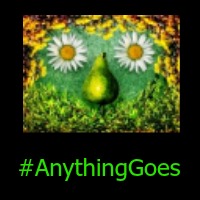 |
| Decorating our tree... |
Decorating our tree is something we enjoy doing as a family, although this year it looks a bit wonky, and as our kids are only a certain height the first pass of decoration hanging was predominantly only the bottom half of the tree - we had to do a certain amount of bauble redistribution afterwards!
Many of our decorations have a story behind them, so as we decorate we remember the stories, memories and landmarks that they evoke. It's fun, and I'm glad that we stopped using tinsel a few years ago - instead we picked up a few gold and red painted bead chains from a pound shop, which are much easier to adorn the tree with and are less "in your face"!
"Many of our decorations have a story behind them"We've never put many lights up outside our house, but there are plenty of houses in the neighbourhood that do so with avengence! Certain houses become landmarks, visible for miles around due to their festive illuminations. Some, I've noticed, leave their copious stars and Santas and reindeer attached to their houses all year, clearly never quite as motivated to take them down as they were to put them up in mid-November! The decorations look a little sad and out of place in the summer to be honest. There's definitely a right season and a wrong season for Christmas house decorations!
"Certain houses become landmarks, visible for miles around due to their festive illuminations"The Birmingham skyline is dominated by giant tower cranes at the moment, one with a seemingly alarming lean (and a notice outside the site saying that it's *meant* to be leaning... still looks a bit alarming if you ask me).
Apparently Birmingham was once home to over 400 multi-story towers (I hesitate to use the word skyscrapers), many of which were landmark buildings at the time but have since fallen into disuse for various reasons.
Some of the tower cranes are there to assist in the demolition of these concrete landmarks, and they're a sign of the ongoing regeneration of the city centre.
Many of the cranes have festive lights on them at this time of year - not a series of lights that I'd be keen to put up though!
Like Christmas lights or tower cranes, we all have landmarks in our lives that are appropriate for a season, and which we can get attached to. But unlike the houses in our neighbourhood, the trick is to know when to take these down when the season is over.
"Like Christmas lights or tower cranes, we all have landmarks in our lives that are appropriate for a season"As we approach the end of the year I'm sure many of us are reflecting back on things we've done, or haven't done, or want to do. Perhaps it's a good time to consider if there's anything adorning our life that's served it's purpose and which needs to come down. Like the derelict tower blocks, things that need to be demolished to make way for new developments and new opportunities.
 |
| It's time to move on. |
But I couldn't just leave it on the street, and there would be no point paying road tax indefinitely for a car that didn't run, so I reluctantly called a salvage yard who came and towed it away.
It was a sad moment but also liberating, the exciting potential of getting something newer (in the end a red Peugeot 306 - I've always driven French diesel cars!).
"The trick is to know when to take these down when the season is over."Enjoy this Christmas season, relish it, but please take down your decorations afterwards, and as we head into a new year maybe ask yourself if you've got any old cars, abandoned buildings or other landmarks in your life that have served their time well but need to make way for something new...
*************
Thanks for taking the time to read Landmarks. If you've enjoyed it please share it with your friends on social media! Why not subscribe to The Potting Shed Podcast on iTunes or Stitcher for expanded musings and much more (direct RSS feed is here).
I'd love to hear from you, so feel free to comment below or email me at stricklandmusings@gmail.com
I was recently interviewed for The Zone Show and the Changeability Podcast, both of which are well worth a listen!































